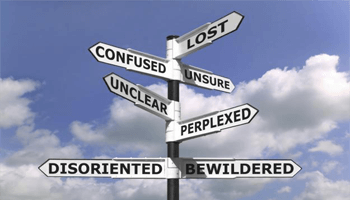Counseling falls under the generic term ‘talking therapies’ and allows people to discuss their problems and any difficult feelings they encounter in a safe, confidential environment.
The term can mean different things to different people, but in general it is a process people seek when they want to change something in their lives or simply explore their thoughts and feelings in more depth.
The counselor may then look to create a plan of action to either help you reconcile your issues or help you to find ways of coping.
During counselling each session is generally tailored to the individual. There is flexibility within this type of therapy that allows for a variety of counselling formats, including:
- Face-to-face
- Individual or group
- Telephone counselling
- Online counselling
Counseling can be useful for anyone who wants to explore the way they’re thinking or feeling further, as well as anyone experiencing a problem or issue they are keen to resolve.
People may choose to speak to a counsellor because they feel they cannot speak to their other half/friends/family about such personal issues, or they may simply wish to speak to a professional with an objective viewpoint. The following examples briefly outline some of the most commonly used therapies in counselling:
- Art therapy
- Behavioural therapy
- Cognitive therapy
- Cognitive behavioural therapy (CBT)
- Eye movement desensitisation and reprocessing (EMDR)
- Humanistic therapies
- Psychoanalysis
Some areas of Counselling:
Spiritual Counseling/Spirtual Healing
Spiritual Healing or Spiritual Counseling is a search for transcendent meaning or the belief in some sort of greater existence outside of humankind, can be linked to religion, but the practice of spirituality is generally considered to go beyond religion and link individuals with something larger, such as the universe itself.
Therapy, a model of treatment for mind and body, is considered to be a more scientific or medical approach.
Child Counseling
Child counseling provides your little ones with an environment where they can explore their difficulties through child-friendly and holistic approaches. Child counselling primarily involves ‘play therapy’ in addition to the commonly used talk therapy.
Children, owing to their still developing language and communication skills often cannot express themselves verbally. They can relate to symbols better, such as are found in stories, picture books, puppets and drawings. This also makes therapy enjoyable for children.
Relationship Counseling
Relationship counseling is the process of counseling the parties of a human relationship in an effort to recognize, and to better manage or reconcile, troublesome differences and repeating patterns of stress upon the relationship.
The relationship involved may be between members of a family or a couple sometimes family therapy, employees or employers in a workplace, or between a professional and a client.
Addictions, Abuse, Low esteem and confidence, eating disorders etc.


